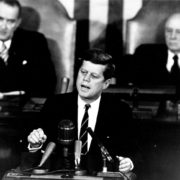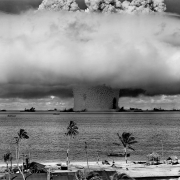What happened in the Abyssinian crisis?
Topic of Study [For H2 History Students]:
Paper 1: Safeguarding International Peace and Security
Section B: Essay Writing
Theme III Chapter 1: Formation of the United Nations
Historical Background
The Abyssinian crisis involved two key parties. In 1922, the Italian dictator Benito Mussolini rose to power. He heavily armed the nation and sought to assert greater influence in the rest of the world.
On the other hand, Abyssinia (now called ‘Ethiopia’) was ruled by Emperor Haile Selassie. It was situated in the middle of two Italian colonies, Eritrea and Somaliland and the lands were well-endowed with natural resources.
The invasion & the League’s muted response
On 3 October 1935, Mussolini mobilised troops and launched a full-scale invasion, crossing the Abyssinian border. Selassie sought the League of Nations (LON) for assistance.
The League Council issued a report in response to Selassie’s pleas for help. After a three-day debate, fifty out of fifty-four members agreed with the Council’s report. The report stated that the imposition of economic sanctions, in terms of exports of key commodities to Italy, should be carried out.
The task of overseeing the implementation of sanctions was charged to a co-ordination committee, which began work on 11 October – known as the Committee of Eighteen, chaired by the Portuguese diplomat, Vasconcellos. Its work was divided into five sections: placing an embargo on exporting arms to Italy, withholding loans and credits, prohibiting the import of Italian goods, a ban on the export of parts for industrial plants, and to minimize the economic effects on the sanctionist states of the imposition of these sanctions.
An excerpt from “Collision of Empires: Italy’s Invasion of Ethiopia and its International Impact” by G. Bruce Strang.
However, the lack of unanimity had stalled the League’s efforts to put the report into action.
A clash of interests: Enter Great Britain and France
Although economic sanctions eventually took effect in November 1935, they were futile in halting Mussolini’s occupation of Abyssinia. The sanctions did not ban the sale of oil. Furthermore, the British did not close the Suez Canal, which allowed open access of commodities, including oil.
As other members of the LON pressured the Council to step up the sanctions on Italy, Great Britain and France made a secret arrangement with Italy.
In December 1935, British Foreign Secretary Samuel Hoare and French Prime Minister Pierre Laval proposed the Hoare-Laval Pact that offered to partition Abyssinia, thereby giving much of the territories to Italy. In return, Italy must agree to end the war.
Then, the Pact was leaked to the press, sparking public outcry. The Pact was not signed and both the British and French ministers were removed from office.
Why British decision makers elected to let Mussolini off the hook engendered controversy at the time, which has continued ever since. When furore erupted over the Hoare-Laval Pact, which flew in the face of the government’s electoral promise that foreign policy was predicated on preserving the sanctity of the League, Stanley Baldwin resorted to the argument that his lips were sealed by national security considerations, a stance that prompted cartoonists to mock the Prime Minister and perplexed supporters and critics alike.
An excerpt from “Collision of Empires: Italy’s Invasion of Ethiopia and its International Impact” by G. Bruce Strang.
In May 1936, Italy annexed Ethiopia. The sanctions had failed to forestall the Italian victory, thus the League Assembly lifted sanctions.
A costly mistake: Impact on the League of Nations
The League’s inaction had diminished its credibility even though the Covenant had stated that all member states should adhere to the collective security system.
The Members of the League undertake to respect and preserve as against external aggression the territorial integrity and existing political independence of all Members of the League. In case of any such aggression or in case of any threat or danger of such aggression the Council shall advise upon the means by which this obligation shall be fulfilled.
Article 10 of the Covenant of the League of Nations.
Some even observed that the League’s failed attempts to prevent the Italian invasion of Ethiopia may have emboldened Hitler to carry out similar acts of aggression later in Czechoslovakia and Poland.
What can we learn from this article?
Consider the following question:
– How far do you agree that the United Nations was built on the foundations of the failed League of Nations?
Join our JC History Tuition to grasp the key concepts and events covered in the topic of the United Nations. The H2 and H1 History Tuition feature online discussion and writing practices to enhance your knowledge application skills. Get useful study notes and clarify your doubts on the subject with the tutor. You can also follow our Telegram Channel to get useful updates.
We have other JC tuition classes, such as JC Math Tuition and JC Chemistry Tuition. For Secondary Tuition, we provide Secondary English Tuition, Secondary Math tuition, Secondary Chemistry Tuition, Social Studies Tuition, Geography, History Tuition and Secondary Economics Tuition. For Primary Tuition, we have Primary English, Math and Science Tuition. Call 9658 5789 to find out more.











